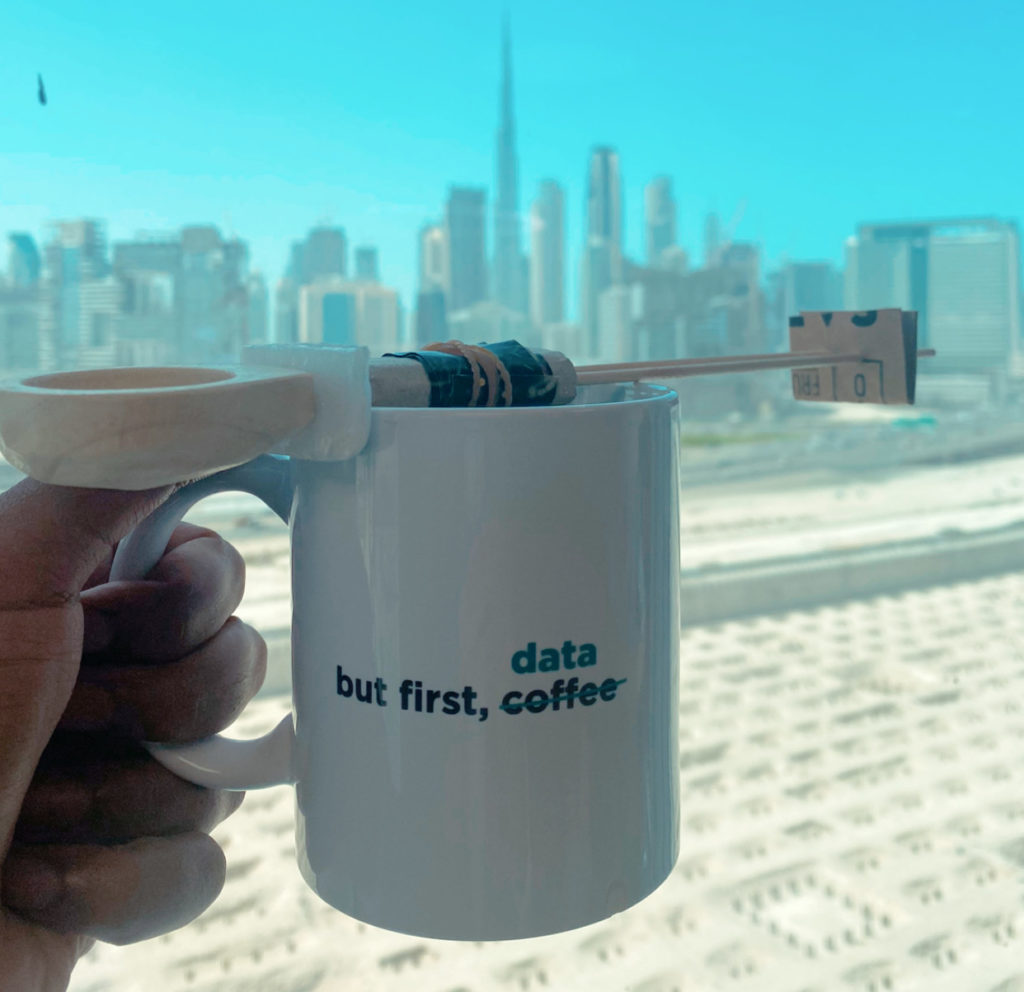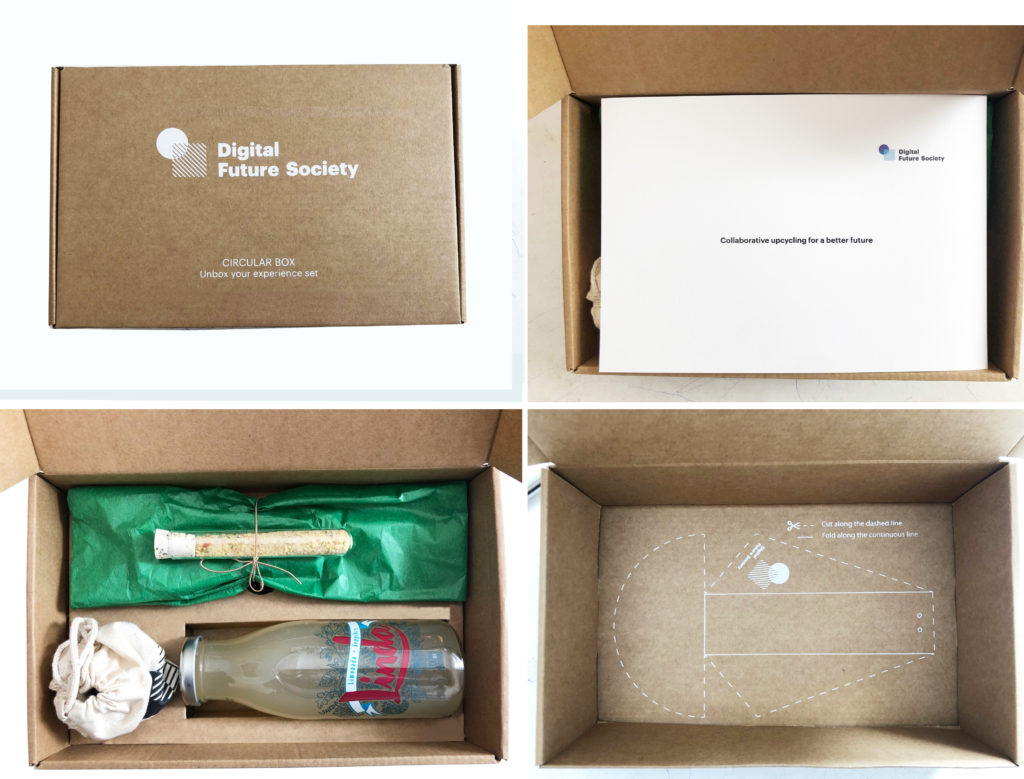A total of 18 prestigious international organisations with extensive experience in advanced research, critical thinking and launching transformative solutions formed The Future Open Council (FOC) to offer guidance to Digital Future Society Think Tank on the biggest issues facing a modern and digitalised world.
For example, one of the council members was Fabro Steibel, Executive Director of the Institute for Technology and Society from Rio de Janeiro. Fabro has been a key member of the FOC, contributing to the Dealing with disinformation report, participating in two working groups, writing articles about our work together and participating in Digital Future Society (DFS) events and debates:
The Future Open Council has an ambitious plan to understand the digital society today and tomorrow. As a member of the Think Tank, we had an opportunity not only to dialogue with the plan to understand a constantly moving target, as much as to help to redesign the plan. One good choice made is to create a diverse, inclusive group of people and institutions to compose the Think Tank, before starting major execution steps of the DFS implementation plan. Using ideas to test and expand plans is a good decision that increases the ambition and impact of the Future Open Council activities.
– Fabro Steibel, Excutive Director of the Instituto de Tecnologia & Sociedade do Rio de Janeiro

To mark the end of the FOC’s mission, the Digital Future Society Think Tank organised one final meeting for all members of the council. A collaborative experience specially prepared to celebrate the opportunity to come together – in a more meaningful way – after a tough year that saw most things around us shaken up with so many hours spent in front of screens working and in meetings.
It has been a real pleasure for me to participate and share experience and knowledge as a member of the Future Open Council in all of its meetings, eg the annual meeting back in November 2019 and right after that the FOC meeting in February 2020. I was also very happy to contribute at the breakout group of Data Governance.
Last but not least, at the last meeting (online) of the FOC held last March (2021) all of the attending members shared a collaborative experience each other. This was a great opportunity for us all to come together and share our experiences over the last year, share our respective professional activities with the group and, also, have some fun. The construction of the tool and the toast together made it a memorable event for some of us.
I should highlight that after the FOC meeting in February 2020, I was invited to contribute to the report on “Towards gender equality in digital welfare” as one of my fields of expertise is AI from a legal point of view, with a focus on regulatory frameworks. The collaboration with Tanya Álvarez and other researchers on that report was very satisfactory.
I hope to be able to collaborate with DFS in the future on any projects or initiatives I can be of help.
– Belén Arribas, Independent Lawyer and President of IFCLA, ICAB
Undoubtedly, 2020 will always be known as the year of Covid, the year when all the social divides we live with became even more visible. The final session of the FOC focused on making council members reflect on the post-Covid-19 recovery process and how the pandemic has changed our day to day lives. The European Commission refers to this period as an “immense challenge” that must be turned into an opportunity and the World Economic Forum talks about the coming months as “the great reset”. UN Women reminds us that all progress achieved for women around the world in the past decades is “at risk of being rolled back”.
What we have endured and will continue to do so as we move forward is a resetting that we must turn into an opportunity. An opportunity to increase systems of collaboration, develop improved gender-perspectives, gender-equality, foster equitable growth and make stronger climate sustainability efforts. To mark this, the final FOC session was all about sharing stories, strengthening relationships and rethinking the post-pandemic models of action, impact and engagement.
DFS has been a leader in thought leadership in digitization matters. I have benefitted from its great ideas, thoughts and creativity. It is simply a pleasure being part of the thought leadership debates. Keep it up!
– Grace Githaiga, Host of Take on Tech and Convenor of KICTANet
In this context, the FOC virtual meeting, became an opportunity to build something together while ignoring, for a time at least, the physical distances separating council members. Everybody received an “experience box” containing a set of earphones, a soft drink, and tools for participating in a creative workshop.

The session had a few clear goals:
- Get to know each of the five participants better and even remember their favourite spice.
- Discover an organisation that each participant would like to collaborate with in the future.
- To forget for a bit the “virtual” aspects of the session.
A differential point of the FOC and the activity of Think Tank in the DFS is the care of personal relationships. Thanks to the design of the activities, work is done in a demanding and professional manner but that is not an impediment to include moments of personal connections that, in many cases, have a life of their own outside the scope of the DFS.
Albert Cañigueral – Ouishare Connector Spain & LATAM
The experience helped all participants get to know each other a little more profoundly, discover new insights about each other’s work and organisations, and find new opportunities to collaborate. This session marked the end of a cycle and the first two years of the Digital Future Society programme, during which the FOC had a remarkable role. As well as reflecting on what the members of the FOC have already built together and hope to build together in the future, the session also offered participants the opportunity to build something together physically, even while being spread out across the world.
“It was a rewarding experience to represent the International Institute of Information Technology Bangalore on the Future Open Council and work with a group of committed people, who adopted a global vision and a cross-sectoral, action-oriented approach, to pursue the Digital Future Society Think Tank goals of exploring the challenges and opportunities emerging from the design, use, and governance of digital technologies.”
– Balaji Parthasarathy, Co-founder of the International Institute of Information Technology Bangalore (IIITB) Center for Information Technology and Public Policy
Fabro Steibel, Balaji Parthasarathy, Belén Arribas, Grace Githaiga and Albert Cañigueral are exemples of the great community created through the Future Open Council and represent the extent of the connections that we were able to create during the last two years.
